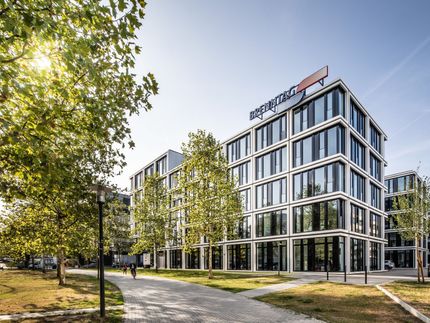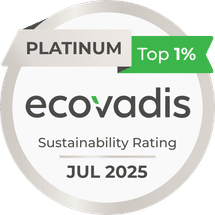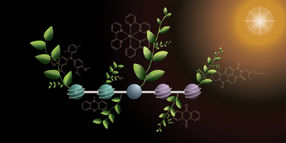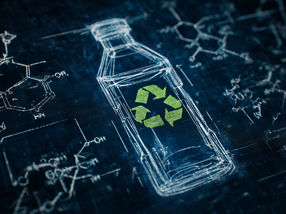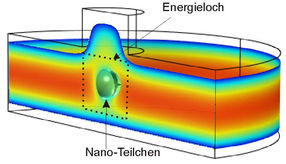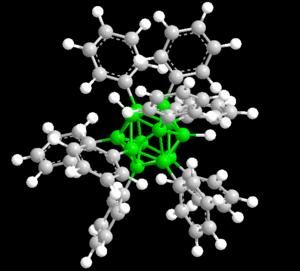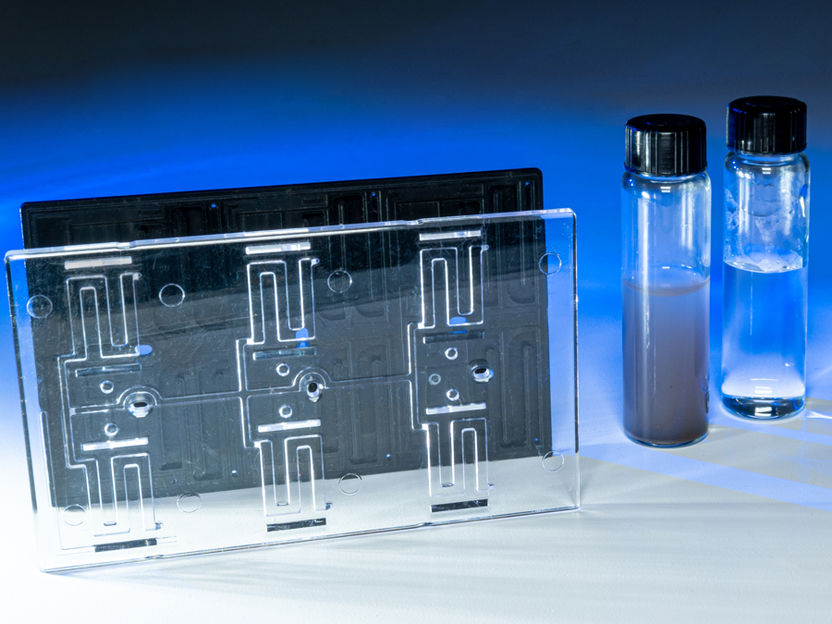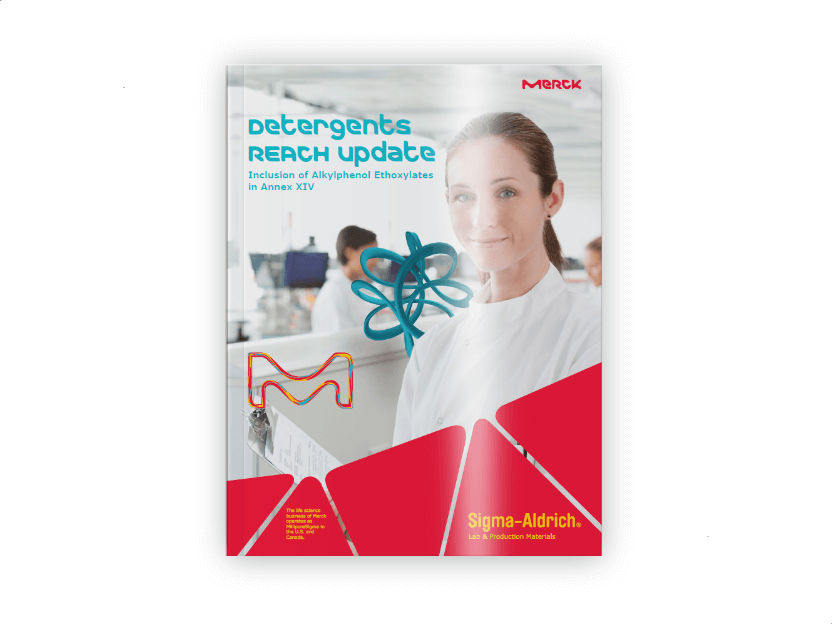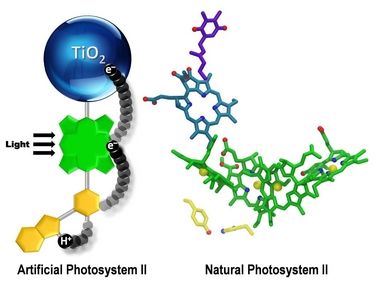Sales and Earnings at WACKER Defined by Lower Volumes in Q2 2024
“Even though a sustained turnaround is not yet in sight, we are seeing the first signs that the economy is recovering...”
Advertisement
Wacker Chemie AG recorded a decline in sales and earnings in the second quarter of 2024. The Munich-based chemical company generated sales of around €1.5 billion in the reporting quarter (Q2 2023: €1.75 billion), down 16 percent. This trend was due primarily to much lower solar-grade polysilicon volumes. Compared with the preceding quarter (€1.49 billion), sales were down 1 percent.
EBITDA (earnings before interest, taxes, depreciation and amortiza-tion) totaled €160 million in Q2 2024, down 37 percent year over year (€256 million). This decrease can also be attributed primarily to lower volumes. The WACKER Group’s reporting-quarter EBITDA margin was 10.9 percent (Q2 2023: 14.6 percent). The margin in the preceding quarter was 11.6 percent.
Group earnings before interest and taxes (EBIT) totaled €43 million in the reporting quarter. This was 72 percent less than a year earlier (€153 million) and corresponded to an EBIT margin of 2.9 percent (Q2 2023: 8.7 percent). Net income for the second quarter of 2024 totaled €35 million (Q2 2023: €119 million), equating to an earnings per share at €0.58 (Q2 2023: €2.38).
WACKER has confirmed its forecast for the full-year 2024. The com-pany continues to anticipate sales in the range of €6.0 billion to €6.5 billion. EBITDA for the full year is expected to be between €600 million and €800 million.
“Even though a sustained turnaround is not yet in sight, we are seeing the first signs that the economy is recovering. Inflation rates are drop-ping at a faster rate than expected, and energy and raw-material prices have eased. Order intake in the chemical industry has improved. We are also seeing a gradual increase in demand again in some areas. In our chemical divisions, sales and earnings were up over the first quarter,” said Group President & CEO Christian Hartel. “In particular, our business with specialty silicones showed a positive development of late. In our polymers dispersions business, we are witnessing a recovery in some areas. Demand has increased considerably again from the manufacturers of consumer products such as paints and packaging, for example. In our polysilicon business, we have further increased the share of polysilicon destined for the semiconductor industry. And bio-pharmaceuticals have been the growth drivers in our biotechnology business in recent months,” Hartel continued. All this, he stressed, was evidence that WACKER’s strategy is bearing fruit. Accordingly, the company further increased its capital expenditures in the second quar-ter. As regards the full-year forecast, which the company confirmed, Hartel explained: “We now expect that EBITDA will be in the upper half of the projected range.”
Regions
Group sales showed varying development from region to region in the second quarter of 2024. Sales in Asia decreased to €540 million, around 33 percent lower than a year earlier (Q2 2023: €810 million). Sales in the Americas totaled €276 million, up 3 percent versus a year earlier (Q2 2023: €268 million). Group sales in Europe amounted to €570 million in the reporting quarter (Q2 2023: €598 million), a decline of 5 percent compared with the prior year.
Capital Expenditures and Net Cash Flow
The Group invested €177 million in the second quarter of 2024 (Q2 2023: €145 million), an increase of 22 percent year over year. Capital expenditures were allocated to expanding capacity in the chemical divisions, increasing capacity for biopharmaceuticals and construction of a new production line for hyperpure semiconductor-grade polysilicon in Burghausen.
Net cash flow was €-179 million in the reporting quarter, after €-99 million in Q2 2023. This reflects, in particular, the higher capital expenditures as well as the acquisition of the US coating company Bio Med Sciences Inc., in addition to increased current assets. With this acquisition, the company is expanding its expertise and its business with silicone-coated healthcare products.
Employees
WACKER’s global workforce increased slightly in the reporting quarter. The Group had 16,461 employees on June 30, 2024 (March 31, 2024: 16,425). At the end of the reporting quarter, 10,609 employees worked at WACKER sites in Germany (March 31, 2024: 10,641) and 5,852 at international locations (March 31, 2024: 5,784).
Business Divisions
In Q2 2024, WACKER SILICONES generated total sales of €719 million. Despite lower selling prices, sales were up 3 percent over a year earlier (€699 million). For example, demand developed well in the industrial coatings sector, in coatings and consumer-related application areas such as textiles. Demand declined in other areas such as the automotive industry. Overall, sales of silicone specialties developed positively. Sales increased 1 percent compared with the preceding quarter (€710 million). In the reporting quarter, EBITDA at WACKER SILICONES amounted to €90 million, up 73 percent com-pared with the same quarter last year (€52 million) and up 11 percent as against the previous quarter (€81 million). The earnings trend bene-fited above all from positive volume and product mix effects. The year-on-year decline in raw material and energy prices and better plant utili-zation also had a positive impact here. The EBITDA margin in Q2 2024 was 12.6 percent, after 7.4 percent in Q2 2023 and 11.4 percent in the preceding quarter.
Total sales at WACKER POLYMERS totaled €389 million in the reporting quarter, 7 percent lower than a year earlier (€417 million). The main reason for this decline were lower sales prices at slightly in-creased volumes. Sales increased over the prior quarter (€372 million) by 5 percent. The division’s Q2 2024 EBITDA amounted to €59 million, down 23 percent from a year earlier (€76 million). Compared with the prior quarter (€56 million), EBITDA was up 5 percent. The earnings trend was affected primarily by lower prices. In contrast, the year-on-year reduction in raw material and energy costs benefitted results. The reporting-quarter EBITDA margin was 15.0 percent, after 18.1 percent a year earlier and 15.0 percent in the preceding quarter.
WACKER BIOSOLUTIONS generated total sales of €98 million in Q2 2024, up by 8 percent year over year (€91 million). Compared with the preceding quarter (€72 million), the division’s sales were up 37 percent. The biopharmaceutical business showed a particularly positive development. Lower prices for products in this division's established business had a negative impact on sales in a year-over-year comparison. EBITDA at WACKER BIOSOLUTIONS totaled €1.1 million in the reporting quarter and was €1.6 million higher than a year earlier (€-0.5 million). Compared with the prior quarter (€4.6 million), EBITDA was down 76 percent. The EBITDA margin amounted to 1.1 percent, after -0.6 percent a year ago and 6.4 percent in Q1 2024.
WACKER POLYSILICON generated total sales of €232 million in the reporting quarter, down 55 percent year over year (€513 million). The main reason for this decline compared to the previous year were significantly lower solar-grade polysilicon sales volumes. Sales were down by 23 percent compared with the preceding quarter (€300 million). At €55 million, WACKER POLYSILICON’s Q2 EBITDA was down 65 percent on the previous year (€156 million). This decline was also primarily due to significantly lower sales volumes. Compared with the first quarter of 2024 (€43 million), EBITDA was up 27 percent. Among other items, lower energy costs had a positive impact here. From April through June 2024, the division’s EBITDA margin amounted to 23.8 percent, after 30.5 percent in Q2 2023 and 14.5 percent in Q1 2024.
Outlook
WACKER detailed its projections for the Group’s performance this year in the Outlook section of its 2023 Annual Report.
The company has confirmed this forecast. WACKER expects business to be slightly down in 2024. Its sales guidance is in the range of €6.0 billion to €6.5 billion. EBITDA is predicted at between €600 million and €800 million. The EBITDA margin is likely to be markedly lower than last year, with capital expenditures slightly below the prior-year figure. Investments will significantly exceed depreciation and amortization, which is expected at €450 million in 2024. WACKER expects net in-come to be substantially lower year over year. Net financial debt is projected to be higher. Net cash flow is likely to be negative in 2024 and significantly below last year’s figure. ROCE is expected to be considerably lower than last year.




